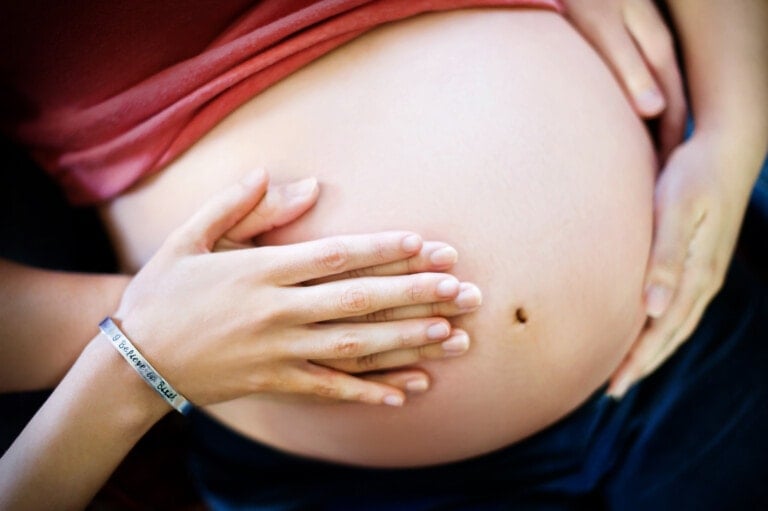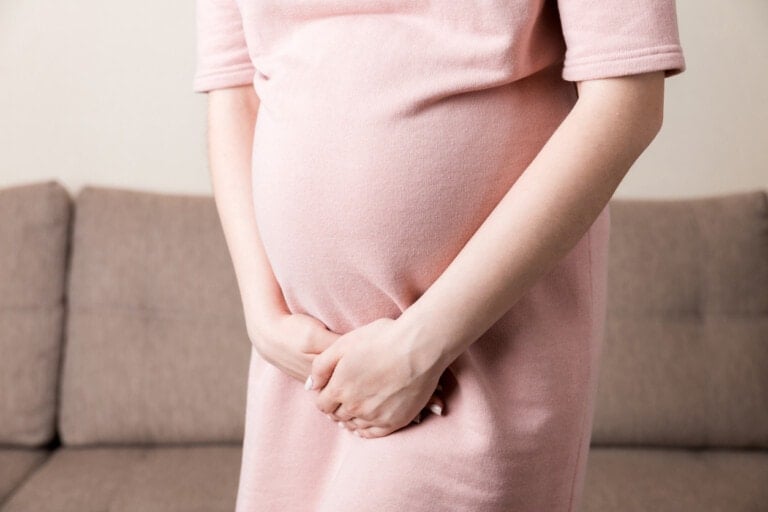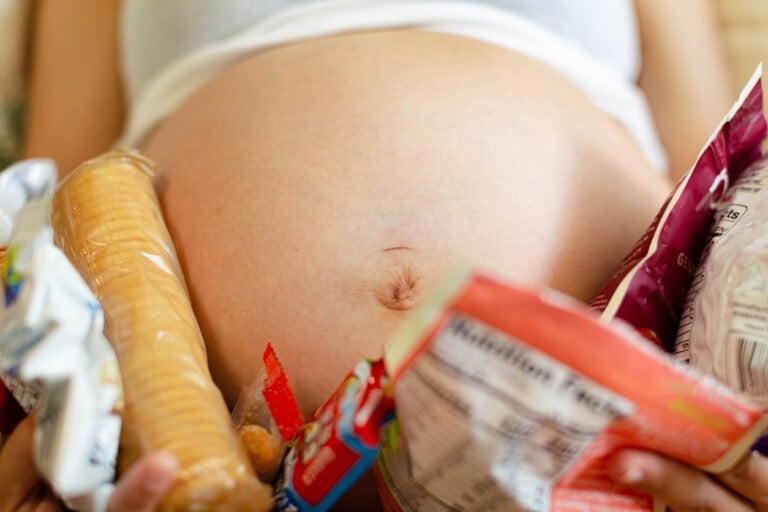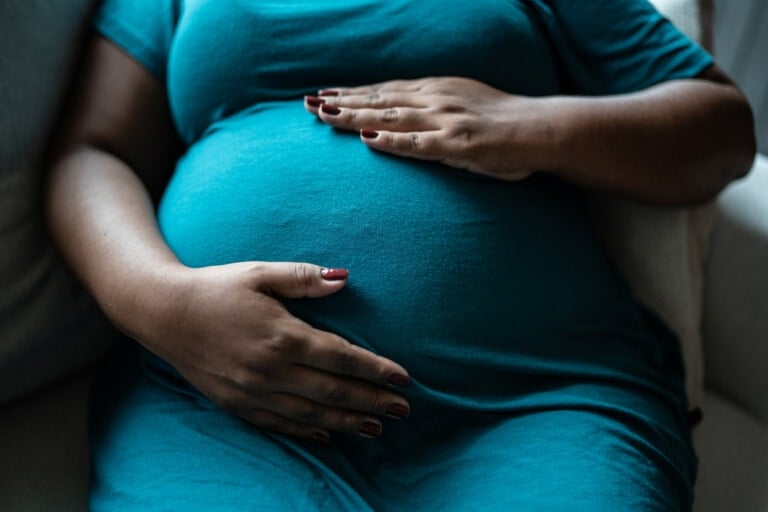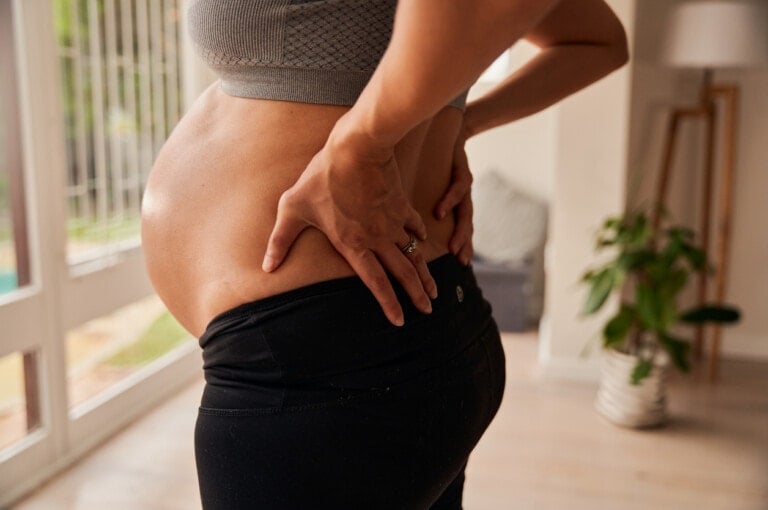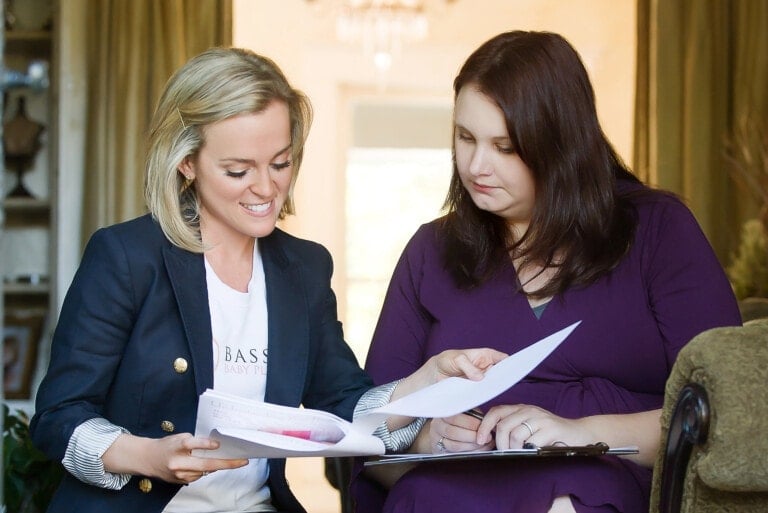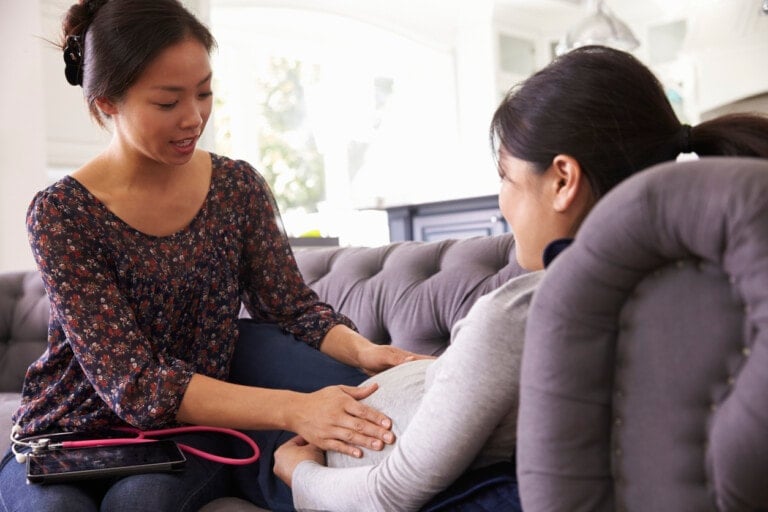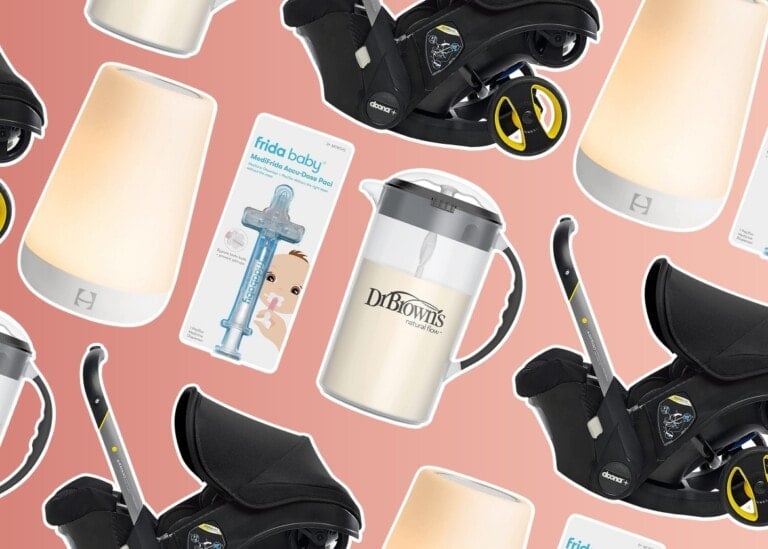Whenever I get asked the question, “What do you do?” I know that I’m about to enter into a conversation — or potentially a monologue — rather than just giving a quick response. It would be wonderful if people understood what a doula does as quickly as they know: “I am a teacher,” “a counselor,” or “an accountant.” But when I reply, “I’m a doula,” I begin to prepare myself to give my explanation.
Most people don’t know what a doula is. So it never surprises me when the person I’m speaking with looks perplexed and has no idea what I’ve just said. Let me say. I don’t mind explaining. It allows me to share my passion and educate someone on a service they or a family member or friend might be interested in using.
What does surprise me and excites me is speaking with someone who DOES know what a doula is. I love hearing their stories about how they heard about doula care. Or how their friend hired a doula or their family member is a doula. Unfortunately, that only happens on rare occasions. I still find myself educating most people on what a doula is and what we do for families.
You, our readers, may not know what a doula is. Today, I wanted to take a few minutes to share the answers to some common questions. So, let’s start from the very beginning. It’s a perfect place to start. 😉
What is a doula?
The word “doula” — pronounced ‘doo-la’ — is an ancient Greek word meaning ‘woman servant, caregiver, or a woman who serves.’ 1 More recently, it refers to a trained and experienced professional who provides continuous physical, emotional, and informational support to the mother and her partner during pregnancy, labor, childbirth, and their postpartum journey.
There are two main types of doulas: Birth Doulas and Postpartum Doulas. Birth Doulas are trained professionals who support women and their partners during pregnancy, childbirth, and immediately postpartum. Postpartum Doulas are trained professionals who support families during their transition into parenthood during the postpartum period (the first 12 weeks after birth).
A doula’s role has also evolved, and more specialties are available in doula care. There are:
- Antepartum Doulas support pregnant women on bedrest or in high-risk or high-stress pregnancy situations.
- Bereavement Doulas provide emotional, physical, and informational support to women and families processing the loss of a child.
- Adoption Doulas build relationships with the birth mother and the adopting or fostering family. Sometimes, it’s just with the birth mother or the adopting or fostering family.
What does a doula do?
Birth Doulas typically offer to meet with each of their clients several times — two, three, or four times — for prenatal visits to go over each couple’s wants and desires and educate them on the options that are and will be available to them. This allows the doula to better support each family during labor and birth.
Birth Doulas bring an entire toolbox of ideas, tricks, and techniques to the birth. Your doula may rub your back for several hours or trade off with your partner in that role when his hands are aching, and he needs to eat and rest. She may be the quiet, calm, reassuring voice whispering in your ear or the firm and anchored voice that will help you get back on track when labor starts to feel intense and overwhelming. She can help you focus on natural ways to help your labor progress (if you want to have an unmedicated birth).
Or she can help you decide which medications you want to use and when the best time is during your labor to get them. Your doula can help straighten out a baby that’s slightly malpositioned in the pelvis, and she can give you ideas on negotiating with the staff to achieve some important elements of your birth plan.
Birth Doulas offer a lot of support to the husband or partner, showing him and other loved ones how they can best help you and reassure them about what’s normal. Your doula might offer a hand massage to help you rest and relax. She can explain your options and help you brainstorm questions when facing medical interventions for you or your baby. Occasionally, doulas’ help and reassurance after birth might be key to establishing your nursing relationship.
Every labor unfolds in its unique way. A doula’s job is to bring her expertise in birth to the table. She will stay fully present and supportive, whatever your family’s needs and desires.

A Postpartum Doula’s role is unique to every family. Essentially, she will come into your home, assess your needs, and jump in to help. Your doula’s role is to nurture you as you transition into life with your new baby. This could include help with breastfeeding, suggestions, information about baby care, and resources to heal your body postpartum. She is like a teacher, sharing evidence-based information and helping you integrate the baby into your family. If you need a shower or a nap, she can help take over baby care. She can also show you how to use several different baby carriers, how to use your breast pump, suggest which diapers, diaper creams, baby detergent, etc., you might want to try, and more. Postpartum Doulas can also do light housekeeping, such as washing dishes, wiping down counters, and doing baby’s laundry.
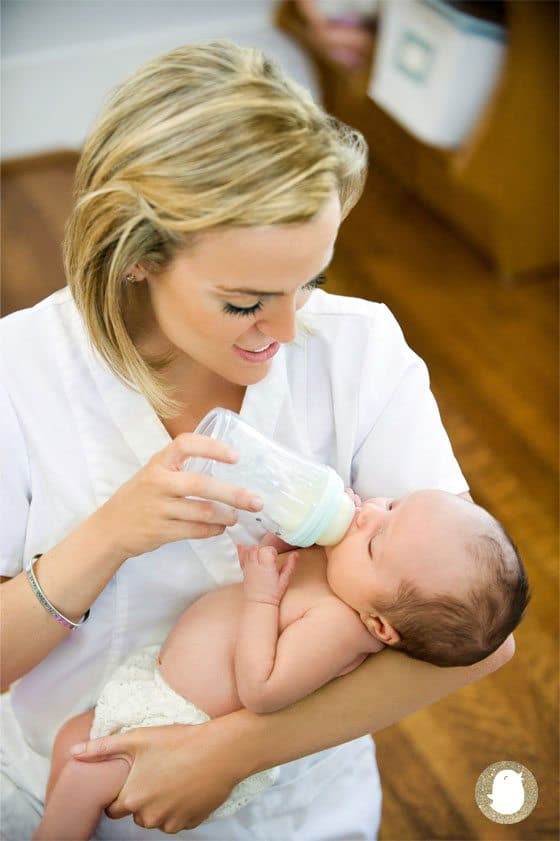
If you have older children, she can spend time playing or working with them to adjust to the big sibling role. She can also run errands for you and pick things up if you cannot drive yet or haven’t been able to get out of the house. Doulas come in with a keen sense of what new families typically need. She will then work with you to decide how she can best support you through the transition into parenthood.
What are the benefits of hiring a doula?
Numerous studies have documented the benefits of having a doula present during labor and postpartum.2,3,4,5,6,7 A Cochrane Review, Continuous Support for Women During Childbirth, showed many positive birth outcomes when a Birth Doula was present.2 With the support of a Birth Doula, women were less likely to have pain-relief medications administered and less likely to have a cesarean birth. Women also reported having a more positive childbirth experience. Here are some of the stats:2
- Decreases the overall cesarean rate by 50%
- Reduces the length of labor by 25%
- Decreases the use of oxytocin by 40%
- Reduces the use of pain medication by 30%
- Decreased requests for an epidural by 60%
- Reduce the number of days newborns spend in the NICU (neonatal infant care unit)
- Reduce the rates of postpartum depression
- Increase the rates of breastfeeding
- Increase the positive maternal assessments of maternal confidence and newborn health
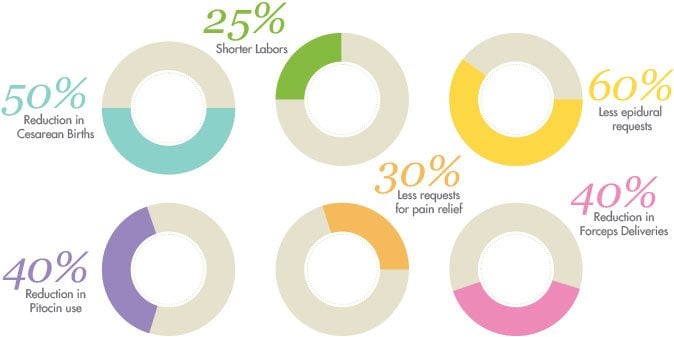
Studies show that having a Postpartum Doula after childbirth results in the following:4
- Greater satisfaction with the postpartum period
- Quicker birth recovery
- More likely to eat healthier and sleep more
- More confidence in parenting and childcare
- Less stress and anxiety
- A more positive opinion of baby
- More affectionate to baby
- Less incidence of postpartum mood disorders
- Higher breastfeeding success rate
These are fantastic results! Who wouldn’t want to improve their chances of having a better overall experience during labor and bringing baby home?
My husband/partner/mom/friend will be my labor support person. Do I still need a Birth Doula?
I know that dads are sometimes nervous that a Birth Doula might take over their role and that they’ll be “shut out” of the labor process. That is not the case at all! Dads and doulas actually complement each other in labor.
A doula is similar to a foreign country tour guide or a team coach. Your tour guide doesn’t take away from your trip. She enhances it for both of you. And how are you supposed to win a game if you have never played the game before? (Assuming your husband hasn’t coached you or any other women in labor.) Your coach can help lead you to victory! The same is true of a doula. She can help you both navigate the healthcare system and understand the process of labor and birth.
Doulas often find themselves reassuring dads/partners about the normal sights and sounds of labor, which can be disconcerting to even the best-prepared support person. A doula shows Dad’s techniques to help the laboring woman based on what is happening in her body—for example, if she is experiencing back labor. “We might try this counter-pressure technique. Let me show you exactly where to put your hands.” Relaxing in the bath? “How about gently pouring water over her belly with each contraction, like this.” Is mom laboring in the bathroom? “Here, let me get the birth ball so she can lean forward into your chest to rest between contractions.”
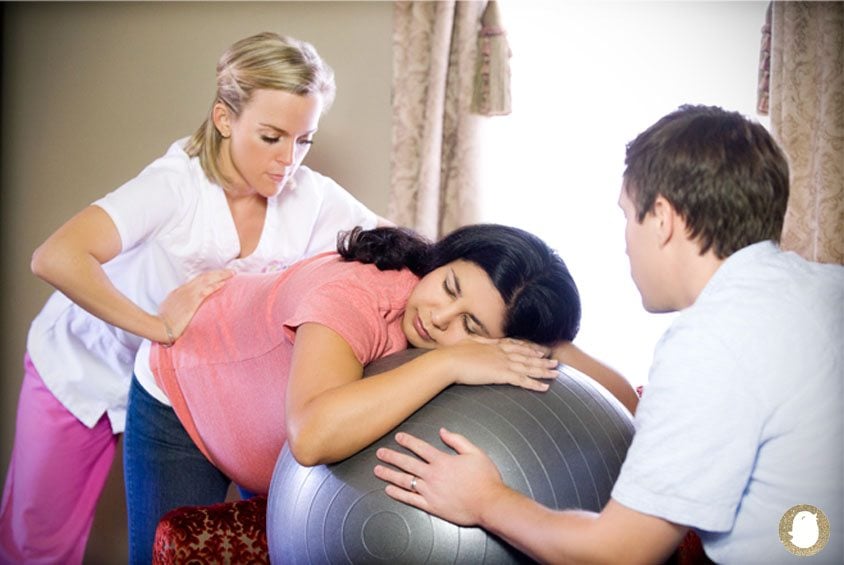
During labor, moms usually retreat into their own private “labor land.” Doulas often bond with the dad during birth as they work together to figure out the best way to support the laboring woman. This is why dads/partners are generally happy to have another “birth partner” with them for the journey!
Friends and family members can also be wonderful labor support people, but their role differs distinctly from a doula. Doulas bring specialized training in birth and labor support. She has seen many births in various settings and can help familiarize you with what to expect at each stage. She doesn’t have the same emotional attachments as your family, so separating herself from your choices is easier.
A doula is there to support you in whatever kind of birth you want, whatever that looks like for you. You don’t have to worry about what a doula might say or do in any given situation, as you may with some friends or family members. She’s there for your unconditional support. She can also support your friends and family, just as she supports dads and partners in the birth space.
I’m getting an epidural. Do I still need a doula?
Doulas come to your birth with an open mind and an open heart. She is not there to carry out some agenda; she’s there to help you have the best birth possible, whatever that looks like for you. She’ll talk in-depth during prenatal meetings to learn more about what kind of birth you envision. Then she’ll put all of her energy into helping you get there. And if you get into labor and, for whatever reason, plans change, a doula can help you cope with the unexpected turn of events.
There’s a lot a doula can do if you opt for pain medication, including position changes and other tricks to help your baby descend. She can also help you cope with the medication’s physical side effects to continue making your journey as comfortable as possible.
I also hate to say it, but sometimes pain medication doesn’t work as expected, but mom’s movements and coping tools are suddenly limited with those medications — a doula will get you through it.
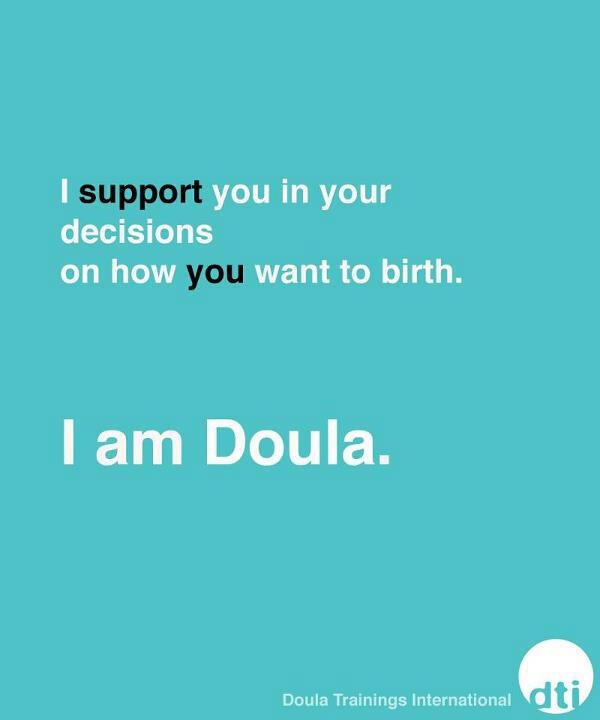
What if I need to have a C-section? Do I still need a doula?
A doula can do many things to help make a cesarean birth the most loving, family-centered experience possible. For example, she can be with you before the surgery to help with relaxation and brainstorming questions for your healthcare team. She can help advocate for some things you might want during the surgery. For example, working with surgeons and anesthesiologists to allow skin-to-skin contact on the operating table while the surgeon finishes the operation. This is so much more family-centered than taking the baby to the nursery or the recovery room to wait for you, and we have found that it significantly decreases birth trauma for the mother. But it often requires some advocacy with the staff—a doula can help with those negotiations.
Doulas can sometimes stay with you and your partner in the operating room during the surgery. However, this is always a case-by-case decision by your surgeon and anesthesiologist. If a doula is allowed in the OR, she can help explain what is happening during the surgery. She can show your husband or partner some physical comfort measures that may help you deal with the sensations of surgery. Sometimes, a baby needs to go to the nursery or the NICU after a cesarean birth. In this situation, the dad or partner generally goes with the baby, and the doula will stay by your side. This helps mothers not feel so alone as the surgery is finished and recovery begins, and it helps partners not feel so torn between mom and baby.
In most cases, the baby will go with the mom to a recovery area, where a doula can help you establish nursing and skin-to-skin bonding. And finally, if the cesarean is unexpected, a doula will offer a compassionate, listening ear to help you process the birth. She can also connect you with resources.
I will have help from my family after the baby is born. Do I still need a Postpartum Doula?
Your husband/partner, family members, and friends can offer wonderful support in the days and weeks postpartum! Some of their skills may spill over into the postpartum doula realm, and others are quite different. Postpartum Doulas are great listeners and can support you in forming your parenting philosophies based on research-based information. Postpartum Doulas are an objective source of information and support. They can help you and your husband or partner adjust to life with this new little person. Many family members and friends have found that they are actually more involved in caring for mom and baby with a Postpartum Doula’s help. This is because they learn exactly how to be most supportive.
Caring for a new mom and baby can also be overwhelming for others. Postpartum Doulas can help share that nurturing role. She can also help dads and partners know how to help the new mom. Additionally, she will reassure them about what is normal for babies and postpartum mothers. Siblings have a big adjustment, too, and a Postpartum Doula can help ease that transition. They can spend time playing and talking about their new role and help the parents with tips on interacting and entertaining older children during the intense weeks when mom is healing and a newborn needs so much attention.
Postpartum Doulas can also help new families recognize the symptoms of imbalance and connect them with resources for help. They are good listeners and can lend an empathetic ear to the new mom. Or help take care of other household responsibilities while she is focusing on getting well. There is also some evidence that using a Postpartum Doula can help reduce the chance of developing postpartum depression.8
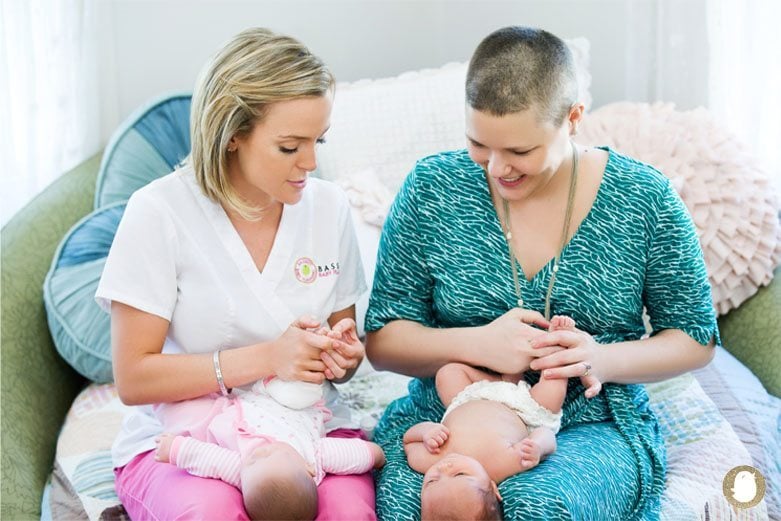
Overall, a doula believes in ‘mothering the mother.’ She has the experience and training to support women during these different times to make their experiences during pregnancy, birth, and motherhood the best they can be.
For more, listen to our podcast episode where two doulas talk about a doula’s role.





















